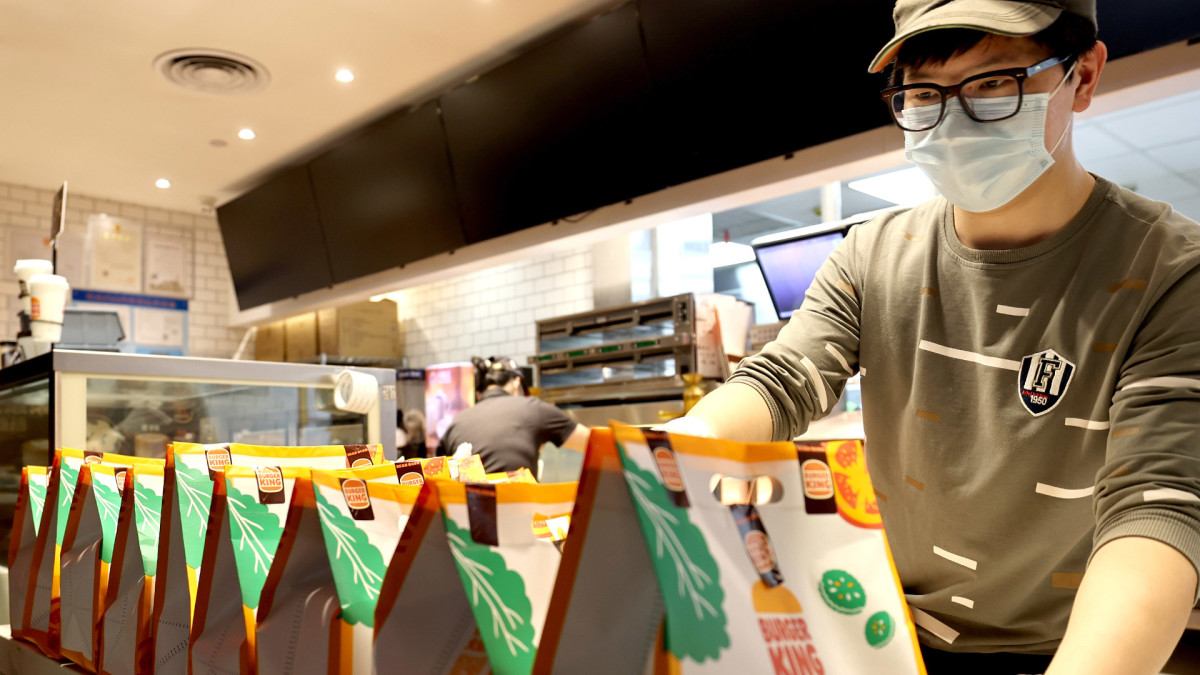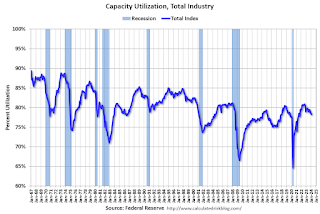Uncategorized
Fake chicken with a real purpose: CEO of Seattle food tech startup aims to make a lasting difference
Editor’s note: This is the second of five profiles of the finalists for Startup CEO of the Year ahead of the 2023 GeekWire Awards. With enough prodding,…

Editor’s note: This is the second of five profiles of the finalists for Startup CEO of the Year ahead of the 2023 GeekWire Awards.
With enough prodding, Christie Lagally will admit that the culture and work ethic at Seattle-based food-tech startup Rebellyous Foods originates with her.
But just as quickly, the founder and CEO of the 5-year-old company shifts the spotlight back to those she works with and what they’re building.
“It also comes from the next person because they’re a leader, and the next person,” Lagally said. “So I don’t feel like I necessarily have to bring it every day because everybody’s bringing that to the table.”
Lagally’s leadership of a small and dedicated team of about 20 employees has helped Rebellyous grow to serve more than 120 major school districts across the U.S. Its products are in 1,100 retail stores nationwide and Rebellyous has raised about $30 million. And now Lagally is among the finalists for Startup CEO of the Year honors at the 2023 GeekWire Awards.
The company, which makes a variety of plant-based faux chicken products including nuggets, patties and tenders, has a bigger mission than just providing another alternative for meat eaters. Rebellyous aims to upend the production of plant-based “meat” products altogether by creating the technology and the manufacturing equipment necessary to scale to a size that makes a difference.
Inspired by real meat processing

“Somebody once described a startup to me as ‘pump it and dump it,'” Lagally said, referencing the idea of creating a lot of value in a company quickly and then selling it. “That is not the purpose of Rebellyous. The purpose of Rebellyous is to create real systemic change in the meat industry. You want to create an organization that’s going to endure.”
Lagally brought that mindset from her earlier career as a mechanical engineer at Boeing, where she spent five years focused on developing equipment to build airplanes faster, better and cheaper.
At the same time, the longtime vegan was, and still is, heavily involved in advocacy type work and politics. She works with the Humane Voters of Washington, a political action committee for the humane treatment of animals, and she cares deeply about climate change, human health and animal welfare.
‘The purpose of Rebellyous is to create real systemic change in the meat industry. You want to create an organization that’s going to endure.’
– Christie Lagally, Rebellyous Foods CEO
Engineering work paid the bills, but Lagally was in search of something that combined her passions and could lead to systemic change in the world and address the climate crisis. She briefly joined The Good Food Institute as a senior scientist, evaluating alternatives to conventional animal agriculture before launching Rebellyous a couple years later.
In her view, existing meat alternatives on the market such as Impossible Foods or Beyond Meat simply hyped the idea of getting consumers to try this or try that. But none had addressed the consumer need of price, quality and volume.
Despite her love for animals, her misgivings about consuming meat, or her feelings about the industry’s impact on the environment, traditional chicken processing provided Lagally with a lot of the inspiration for Rebellyous.
“The chicken industry is the most automated manufacturing system in the world,” Lagally said.
The CEO admits that it’s “disgusting to think about because processing animals is a horrific thing.” But automation is crucial for scaling.
“We’re going to have 10 billion people on the planet and it’s not possible to feed everybody with meat,” Lagally said. “We’re creating a solution to transform chicken production into plant-based meat production. Everybody wins, but it has to be economically feasible.”
Just over five years in, Rebellyous has made significant progress. The startup’s “Mock 2” plant-based meat production equipment, capable of making the dough that is essential to its products and enabling Rebellyous to reach commercial scale production of its food, is just months away from reality.
Lagally said the system will be installed in a yet-to-be-named facility in the Pacific Northwest in November and will start producing roughly 10 million pounds of fake chicken per year and possibly scale up to 25 million.
Out-of-the-box thinker

Richa Thapliyal is the vice president of manufacturing and logistics at Rebellyous, where she’s been reporting in various roles to Lagally for just under three years. She called her “hands down the best manager I have ever had.”
Thapliyal said Lagally is tenacious, persistent and an out-of-the-box thinker whose ability to find solutions to unique challenges is unmatched. She’s also vulnerable and takes critical feedback.
“She never claims to have all the answers, and always seeks diverse inputs and perspectives,” Thapliyal said. “She often asks for, and implements feedback, which in my experience is very rare.”
And the CEO is not afraid to get her hands dirty.
During the peak of COVID in 2021, Thapliyal said the production department was severely short staffed and Lagally volunteered to help on the production floor, where she took over and owned the dishwashing space.
“Her help on the production floor not only helped the team get work done, but moreover helped with demonstrating a culture of collaboration across roles, demonstrating that no task is beyond anyone,” Thapliyal said.
Kristie Middleton, vice president of business development, has reported to Lagally for four years at Rebellyous. They previously worked together at The Humane Society where Middleton helped institutions such as schools and hospitals get more plant-based options on their menus.
It was there that she discovered that Lagally, a volunteer at the time, could be a future entrepreneur as Lagally described how they could solve the barrier of plant-based meat’s cost effectiveness through better manufacturing technology.
Today, Middleton says Rebellyous’ strength is a result of Lagally’s relentless pursuit of “getting to a yes,” a core value that describes the company’s tenacity to overcome challenges that initially seem impossible.
“She is always thinking about protecting the company for long-term sustainability over flash-in-the-pan growth,” Middleton said.
As a leader, Lagally believes that people at her company want to be there — especially in what she considers an employee job market, where there are other choices.
“You don’t come to Rebellyous to be miserable,” Lagally said. “Life is way too short to be unhappy at your job. This should not be a grind. It should be an adventure.”
treatment pandemicUncategorized
One city held a mass passport-getting event
A New Orleans congressman organized a way for people to apply for their passports en masse.

While the number of Americans who do not have a passport has dropped steadily from more than 80% in 1990 to just over 50% now, a lack of knowledge around passport requirements still keeps a significant portion of the population away from international travel.
Over the four years that passed since the start of covid-19, passport offices have also been dealing with significant backlog due to the high numbers of people who were looking to get a passport post-pandemic.
Related: Here is why it is (still) taking forever to get a passport
To deal with these concurrent issues, the U.S. State Department recently held a mass passport-getting event in the city of New Orleans. Called the "Passport Acceptance Event," the gathering was held at a local auditorium and invited residents of Louisiana’s 2nd Congressional District to complete a passport application on-site with the help of staff and government workers.
'Come apply for your passport, no appointment is required'
"Hey #LA02," Rep. Troy A. Carter Sr. (D-LA), whose office co-hosted the event alongside the city of New Orleans, wrote to his followers on Instagram (META) . "My office is providing passport services at our #PassportAcceptance event. Come apply for your passport, no appointment is required."
More Travel:
- A new travel term is taking over the internet (and reaching airlines and hotels)
- The 10 best airline stocks to buy now
- Airlines see a new kind of traveler at the front of the plane
The event was held on March 14 from 10 a.m. to 1 p.m. While it was designed for those who are already eligible for U.S. citizenship rather than as a way to help non-citizens with immigration questions, it helped those completing the application for the first time fill out forms and make sure they have the photographs and identity documents they need. The passport offices in New Orleans where one would normally have to bring already-completed forms have also been dealing with lines and would require one to book spots weeks in advance.
These are the countries with the highest-ranking passports in 2024
According to Carter Sr.'s communications team, those who submitted their passport application at the event also received expedited processing of two to three weeks (according to the State Department's website, times for regular processing are currently six to eight weeks).
While Carter Sr.'s office has not released the numbers of people who applied for a passport on March 14, photos from the event show that many took advantage of the opportunity to apply for a passport in a group setting and get expedited processing.
Every couple of months, a new ranking agency puts together a list of the most and least powerful passports in the world based on factors such as visa-free travel and opportunities for cross-border business.
In January, global citizenship and financial advisory firm Arton Capital identified United Arab Emirates as having the most powerful passport in 2024. While the United States topped the list of one such ranking in 2014, worsening relations with a number of countries as well as stricter immigration rules even as other countries have taken strides to create opportunities for investors and digital nomads caused the American passport to slip in recent years.
A UAE passport grants holders visa-free or visa-on-arrival access to 180 of the world’s 198 countries (this calculation includes disputed territories such as Kosovo and Western Sahara) while Americans currently have the same access to 151 countries.
stocks pandemic covid-19 grantsUncategorized
Fast-food chain closes restaurants after Chapter 11 bankruptcy
Several major fast-food chains recently have struggled to keep restaurants open.

Competition in the fast-food space has been brutal as operators deal with inflation, consumers who are worried about the economy and their jobs and, in recent months, the falling cost of eating at home.
Add in that many fast-food chains took on more debt during the covid pandemic and that labor costs are rising, and you have a perfect storm of problems.
It's a situation where Restaurant Brands International (QSR) has suffered as much as any company.
Related: Wendy's menu drops a fan favorite item, adds something new
Three major Burger King franchise operators filed for bankruptcy in 2023, and the chain saw hundreds of stores close. It also saw multiple Popeyes franchisees move into bankruptcy, with dozens of locations closing.
RBI also stepped in and purchased one of its key franchisees.
"Carrols is the largest Burger King franchisee in the United States today, operating 1,022 Burger King restaurants in 23 states that generated approximately $1.8 billion of system sales during the 12 months ended Sept. 30, 2023," RBI said in a news release. Carrols also owns and operates 60 Popeyes restaurants in six states."
The multichain company made the move after two of its large franchisees, Premier Kings and Meridian, saw multiple locations not purchased when they reached auction after Chapter 11 bankruptcy filings. In that case, RBI bought select locations but allowed others to close.
Image source: Chen Jianli/Xinhua via Getty
Another fast-food chain faces bankruptcy problems
Bojangles may not be as big a name as Burger King or Popeye's, but it's a popular chain with more than 800 restaurants in eight states.
"Bojangles is a Carolina-born restaurant chain specializing in craveable Southern chicken, biscuits and tea made fresh daily from real recipes, and with a friendly smile," the chain says on its website. "Founded in 1977 as a single location in Charlotte, our beloved brand continues to grow nationwide."
Like RBI, Bojangles uses a franchise model, which makes it dependent on the financial health of its operators. The company ultimately saw all its Maryland locations close due to the financial situation of one of its franchisees.
Unlike. RBI, Bojangles is not public — it was taken private by Durational Capital Management LP and Jordan Co. in 2018 — which means the company does not disclose its financial information to the public.
That makes it hard to know whether overall softness for the brand contributed to the chain seeing its five Maryland locations after a Chapter 11 bankruptcy filing.
Bojangles has a messy bankruptcy situation
Even though the locations still appear on the Bojangles website, they have been shuttered since late 2023. The locations were operated by Salim Kakakhail and Yavir Akbar Durranni. The partners operated under a variety of LLCs, including ABS Network, according to local news channel WUSA9.
The station reported that the owners face a state investigation over complaints of wage theft and fraudulent W2s. In November Durranni and ABS Network filed for bankruptcy in New Jersey, WUSA9 reported.
"Not only do former employees say these men owe them money, WUSA9 learned the former owners owe the state, too, and have over $69,000 in back property taxes."
Former employees also say that the restaurant would regularly purchase fried chicken from Popeyes and Safeway when it ran out in their stores, the station reported.
Bojangles sent the station a comment on the situation.
"The franchisee is no longer in the Bojangles system," the company said. "However, it is important to note in your coverage that franchisees are independent business owners who are licensed to operate a brand but have autonomy over many aspects of their business, including hiring employees and payroll responsibilities."
Kakakhail and Durranni did not respond to multiple requests for comment from WUSA9.
bankruptcy pandemicUncategorized
Industrial Production Increased 0.1% in February
From the Fed: Industrial Production and Capacity Utilization
Industrial production edged up 0.1 percent in February after declining 0.5 percent in January. In February, the output of manufacturing rose 0.8 percent and the index for mining climbed 2.2 p…

Industrial production edged up 0.1 percent in February after declining 0.5 percent in January. In February, the output of manufacturing rose 0.8 percent and the index for mining climbed 2.2 percent. Both gains partly reflected recoveries from weather-related declines in January. The index for utilities fell 7.5 percent in February because of warmer-than-typical temperatures. At 102.3 percent of its 2017 average, total industrial production in February was 0.2 percent below its year-earlier level. Capacity utilization for the industrial sector remained at 78.3 percent in February, a rate that is 1.3 percentage points below its long-run (1972–2023) average.Click on graph for larger image.
emphasis added
This graph shows Capacity Utilization. This series is up from the record low set in April 2020, and above the level in February 2020 (pre-pandemic).
Capacity utilization at 78.3% is 1.3% below the average from 1972 to 2022. This was below consensus expectations.
Note: y-axis doesn't start at zero to better show the change.
 The second graph shows industrial production since 1967.
The second graph shows industrial production since 1967.Industrial production increased to 102.3. This is above the pre-pandemic level.
Industrial production was above consensus expectations.
-

 Uncategorized3 weeks ago
Uncategorized3 weeks agoAll Of The Elements Are In Place For An Economic Crisis Of Staggering Proportions
-

 International1 week ago
International1 week agoEyePoint poaches medical chief from Apellis; Sandoz CFO, longtime BioNTech exec to retire
-

 Uncategorized4 weeks ago
Uncategorized4 weeks agoCalifornia Counties Could Be Forced To Pay $300 Million To Cover COVID-Era Program
-

 Uncategorized3 weeks ago
Uncategorized3 weeks agoApparel Retailer Express Moving Toward Bankruptcy
-

 Uncategorized4 weeks ago
Uncategorized4 weeks agoIndustrial Production Decreased 0.1% in January
-

 International1 week ago
International1 week agoWalmart launches clever answer to Target’s new membership program
-

 Spread & Containment3 days ago
Spread & Containment3 days agoIFM’s Hat Trick and Reflections On Option-To-Buy M&A
-

 Uncategorized4 weeks ago
Uncategorized4 weeks agoRFK Jr: The Wuhan Cover-Up & The Rise Of The Biowarfare-Industrial Complex



















